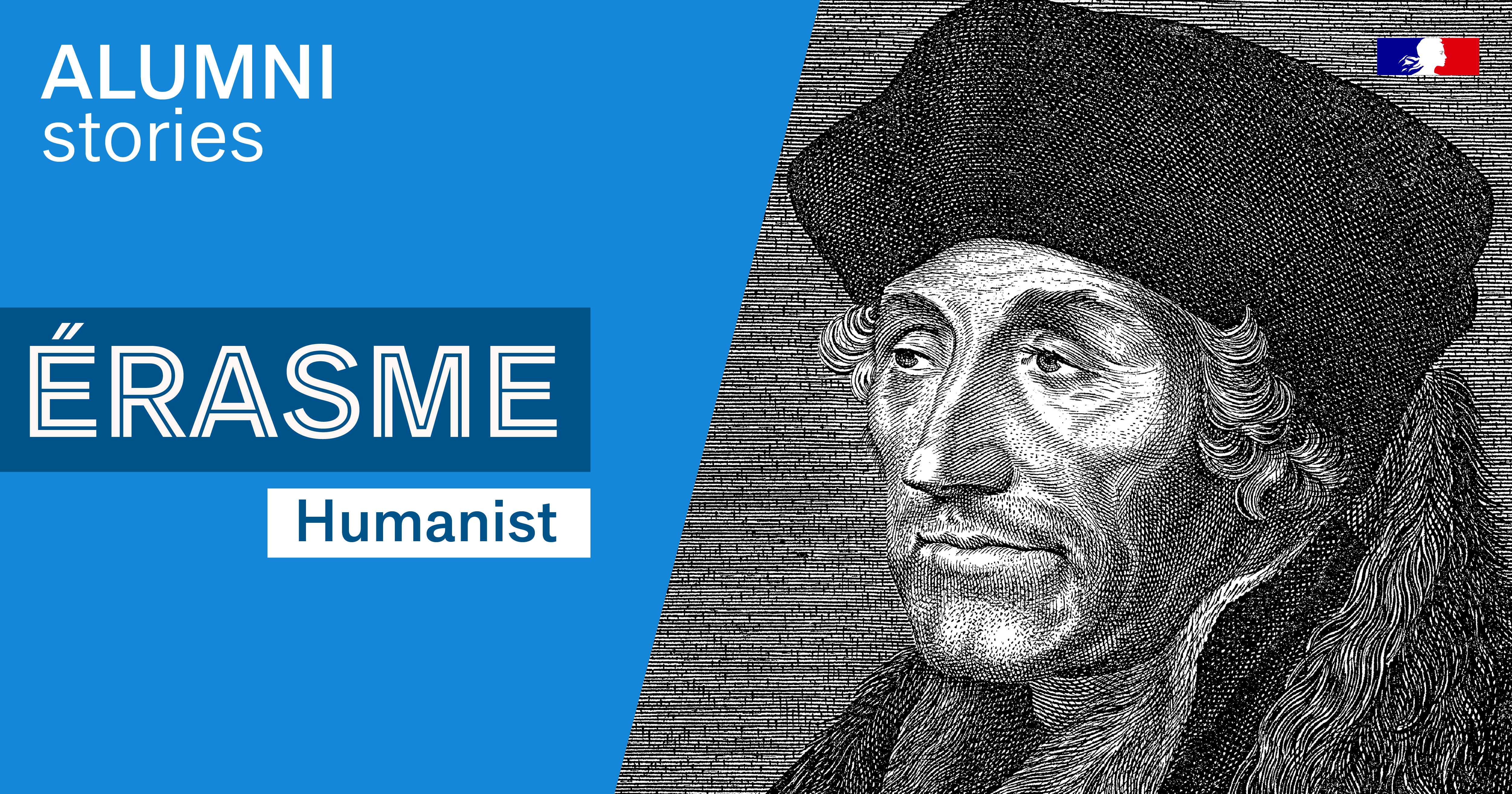Erasmus or humanism on the march
Erasmus or humanism on the march

It's nice to know that the most well-known academic exchange and mobility program for international students is named after the famous historical figure Erasmus, the tireless champion of humanism who acquired most of his philosophical doctrine in France. Of course, this is no accident: as the European Parliament points out, the name of the Erasmus program, which was launched in 1987, does indeed come from the "famous Dutch humanist monk Erasmus who traveled for many years throughout Europe to learn about different cultures."
A brilliant Latinist in Paris
Erasmus was born in the late 1460s - it is not known exactly when - in Rotterdam, Netherlands, into a family of very modest origin. Nevertheless, he was fortunate enough to be able to study at a Christian school, where he acquired the rudiments of the Latin language. After a brief stint in religion (he was a priest for only one year), Erasmus had the opportunity to travel throughout Europe in the service of great figures of the church, due to his reputation as a brilliant Latinist. At that time, the Latin language was widely used in intellectual and religious circles.
After a brief stay in Brussels, he obtained permission from his bishop to study in France in 1495 at the University of Paris, one of the most important and oldest universities of the Middle Ages, founded in the middle of the twelfth century. The University of Paris was one of the first universities in Europe, along with the universities of Montpellier and Toulouse in France, Bologna and Padua in Italy, Oxford and Cambridge in England, and Salamanca in Spain.
A philosopher and an educator
Among European universities, the University of Paris was the most important center of philosophical studies at that time. The scholasticism taught there was the very essence of medieval philosophy and was a kind of synthesis of Greek philosophy and Christian theology. Fortunately, this austere teaching was counterbalanced by the influence of the Italian Renaissance, with the significant addition of "belles-lettres" - essentially ancient and modern Latin poetry - to the curriculum. In Paris, Erasmus met intellectual figures that posterity has forgotten, such as Fauste Andrelin and Robert Gaguin, one of the first representatives of French humanism who helped Erasmus publish his first text.
Erasmus was a poor student: while studying in Paris for his doctorate in theology, he had to use his talents in other ways to support himself. He became a preceptor and gave Latin lessons to wealthy foreign students. He wrote instructional manuals for his students (which were published much later), manuals of eloquence or essays in the art of writing, as well as his famous Adages, a list of formulas, sayings and proverbs of ancient authors with a commentary on their meaning, origin and possible applications. It was his first edition of the Adages, published in Paris in 1500, that earned Erasmus his reputation as a humanist. Other works, such as The Praise of Folly, added to his reputation, which was earned during his lifetime.
A free and pacifist spirit
After his time in Paris, Erasmus set out again on the roads of Europe, traveling to London, to Paris again, then to Brussels, Turin, Bologna, Venice, Basel and Freiburg. During his travels, his continuous studies and his encounters with the world's greatest intellectuals and the most powerful personalities of that time, Erasmus forged his own philosophy which is still relevant to the world today.
In addition to his ideas on education, which he believed should cast aside conformity, Erasmus was first and foremost a "free spirit" who based his work on the ideal of tolerance. While his religious faith always remained strong, he nevertheless spoke out against all forms of clericalism or fanaticism. Throughout his life, he was convinced that only a solid cultural foundation, based on the teachings of antiquity and on Greek and Latin literature, would be useful for everyone. Because he himself was nourished by all this knowledge, he advocated sharing and access to culture and knowledge for all.
According to one scholar, he also developed "an enduring reflection on the horrors of war and on the means of preserving peace, a peace that was always threatened, in his time as in ours, and which seemed to Erasmus to be humanity's most precious possession."As Stefan Zweig wrote in his biography of Erasmus, "there will always be a need for those who show people what brings them together in spite of what divides them and who restore belief in a higher humanity in the hearts of men."
For more information
- The Republic of Letters Bookstore
- Radio France/France Culture (podcasts) : Erasmus the European ; Erasmus, the first internationalist
- Erasmus Museum in Brussels
- The official Erasmus+ website for academic exchange
-
Read also the book by Stefan Zweig, Erasmus, Grandeur and Decadence of an Idea (Paperback)


